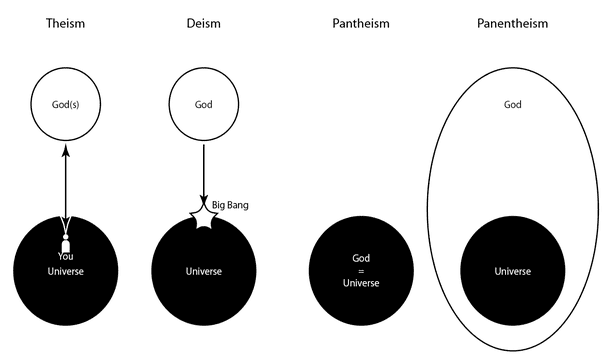
National Association of Christian Ministers Summary Series: Theology

We begin with the word theism. That is, the belief in God. The stem “pan” means all. Together we have pantheism and panentheism.
The most commonplace understanding is that pantheism is the view that God:
-
- is identical with the universe,
- that there exists nothing which is outside of God,
As opposed to the belief that God is distinct from the universe.
Panentheism forages the view of God’s isolation from the world; and the identification of God with the Orthodox theological systems -which polarizes the distinction between God and creation. Panentheism maintains a view of God’s presence in creation, while still permitting Him to be separated from it.
Panentheism is a philosophical and theological concept that describes the relationship between God and the universe. It combines elements of both pantheism (the belief that God is everything and everything is God) and theism (the belief in a personal God who transcends the universe).
In panentheism, God is seen as both immanent (present within the universe) and transcendent (existing beyond the universe). God is not limited to the physical universe but is also intimately connected to it. In other words, the universe is seen as being within God, but God is also greater than the universe.
Pantheists believe that everything in the universe is a part of God and that God is present in every aspect of creation. However, they also believe that God is more than just the sum total of all things in the universe. God is also seen as a personal being with consciousness, will, and purpose.
Panentheism is a common belief in many Eastern religions, such as Hinduism and Buddhism, as well as in some forms of Western mysticism. Some theologians have also embraced panentheism as a way to reconcile scientific discoveries about the universe with traditional religious beliefs.
While panentheism may share some similarities with pantheism and theism, it is a distinct and complex philosophical and theological concept that attempts to reconcile the immanent and transcendent aspects of God and the universe.




